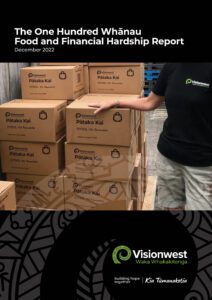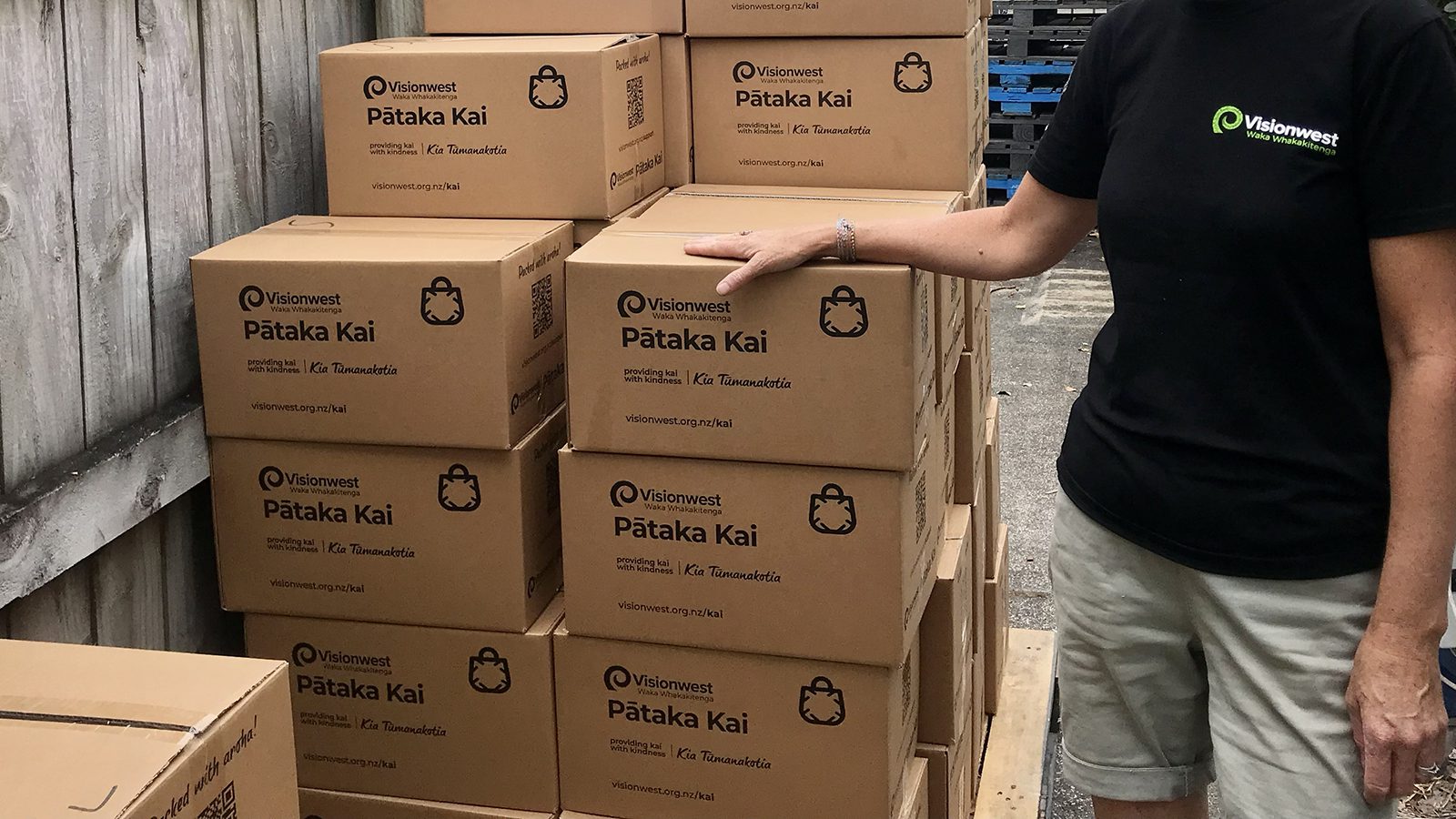Looking to the Future

Whanau Report 2022
In December 2022, Visionwest Waka Whakakitenga – a West Auckland-based community trust working in regions throughout the country to provide wraparound support services to people with a variety of needs – released The One Hundred Whānau Food and Financial Hardship Report.
The Report is based on the responses of 110 client whānau (representing over 400 people) associated with Visionwest who completed an in-depth survey relating to their financial situation with a specific emphasis on food insecurity.
This is Part Four of a four-part series based on that report. Part One can be found here.
Nine report findings
The One Hundred Whānau Food and Financial Hardship Report surveyed 110 whānau who currently receive food support from Visionwest – the report was written before the recent weather events that have affected many parts of the country, but the findings remain accurate. The overwhelming finding from survey and report was that, despite receiving much appreciated subsidies and other benefits, things are not getting better and for many they are steadily becoming worse.
Many are experiencing financial struggles and are accessing support services for the first time. Others have been struggling for some time but, following COVID and with the almost unprecedented cost of living rises, have been forced deeper into the challenges that accompany financial insecurity.
Findings of the survey and interviews of 110 of West Auckland’s least food secure whānau include:
- While many have learned to live with the virus itself, the challenges that the Covid pandemic triggered for society’s most vulnerable whānau have not gone away.
- Many who previously had no need to access support services are now having to do so and the rising cost of living is tipping previously financially stable people into spirals of debt and poverty.
- There is a pressing ongoing need for food support.
- Wraparound social services such as financial mentoring help greatly but cannot fix the most basic problem that income levels are insufficient.
- Figures continue to demonstrate that inequalities persist with Māori and Pasifika people being the most disadvantaged.
- The cost of housing is a huge burden.
- Stress is a huge factor in the lives of those with food insecurity.
- Limited resources mean people often forego medical treatment which may have expensive and personally dire consequences in the future.
- Provisions meant as emergency support are now mainstays for many.
The bottom line
In 2019, the Welfare Expert Advisory Group wrote, “We found evidence that the levels of main benefits are well below those levels necessary for an adequate standard of living, let alone the levels necessary for even modest participation in society. Even with modest levels of expenditure across core spending items (for example, food, power, and housing), individuals and families receiving a range of income support payments face ongoing financial deficits (total spending levels greater than their income entitlements).
It must be noted that these conclusions also hold for many of those in paid employment on low wages. Further, spending that allows people to participate meaningfully in their communities (for example, children’s sports fees) results in even larger deficits, as does servicing existing debt.” Visionwest’s report, combined with their ongoing experience with low-income whānau, confirms this assessment.
What is evident is that a simple increase in the level of support will not fix all of the problems in society, but it may impact greatly on most of them. The systemic problems of inequality and disparity need to be constantly addressed but, in the meantime, a huge amount of stress and despair could be alleviated by welfare benefits being reset to realistic levels. As housing is the single biggest expense of most whānau in this survey, assistance in this area would rapidly lift many people out of financial stress.
POSTSCRIPT following the Auckland flooding and Cyclone Gabrielle. The report shines a light on the simple reality that while many New Zealanders grapple with poverty, many others are teetering on the edge, sitting just one unexpected incident or crisis away from falling into poverty themselves. For many, the recent weather events will have been that unexpected moment.
This is the fourth and final part of Visionwest’s commentary on Food and Financial Hardship in Aotearoa New Zealand.
You can read the entire Visionwest One Hundred Whānau Food and Financial Hardship Report at https://visionwest.org.nz/about-us/resources-publications/hardship-report/.
